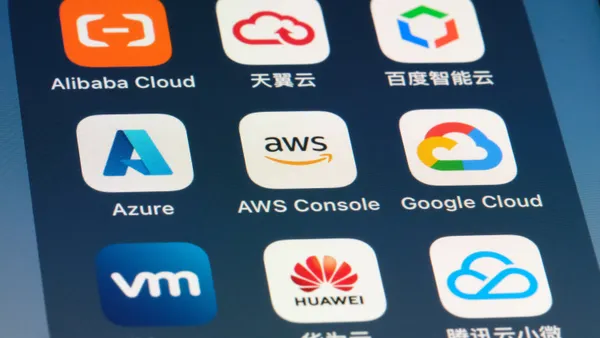Dive Brief:
-
Although a majority of organizations are undergoing digital transformation, 44% of employees say they are requesting more tools for work management but executives aren't receptive, according to a Workfront survey of more than 2,000 U.S. workers. More millennials say they are requesting more tools but not getting them than Baby Boomers or Gen Xers.
-
About 43% of millennials say their company is pushing too many technology tools on them whereas only 25% of Baby Boomers say the same thing. Still, the majority of workers, 83%, agree workplace automation will enable more innovative work processes, according to the report.
-
Forty percent of respondents said their organizations have a difficult time effectively understanding how to use quality data in business decisions. Less than one-third of respondents say they have a good handle of their collected data and what's done with it, and 17% say their organization is not collecting the right kind of data.
Dive Insight:
Digital transformation is unending evolution, evidenced by the up to $50 million some companies are willing to spend on it in the next 12 months.
New tech tools are enabling project managers to expand employees' technical abilities, but they need to be aware that inundating employees with too many tools can backfire on productivity.
It'll take years before some workplace technologies see their spot in mainstream use, including citizen data science and conversational user interfaces. While workplace tools are used to promote digital dexterity, which is a given for digital transformation, many tools have a projected lifespan, including when they will have reached their plateaus in mainstream market adoption.
A disconnect in interdepartmental communication and insufficient training for line of business employees can lead to a derailment in digital transformation. But before any effective change occurs, culture needs to accommodate it. About 80% of companies to successfully foster a digital culture experienced a breakthrough in their transformation.
It takes approximately two years for companies to change their technical mindset, making it less of a technology issue and more of a cultural one. This entails adopting disruptive and experimental methods to innovation where digital ethics will be the foundational "philosophy for the human and ethical design and deployment of digital constructs," according to Gartner in the 2018 Hype Cycle report.













